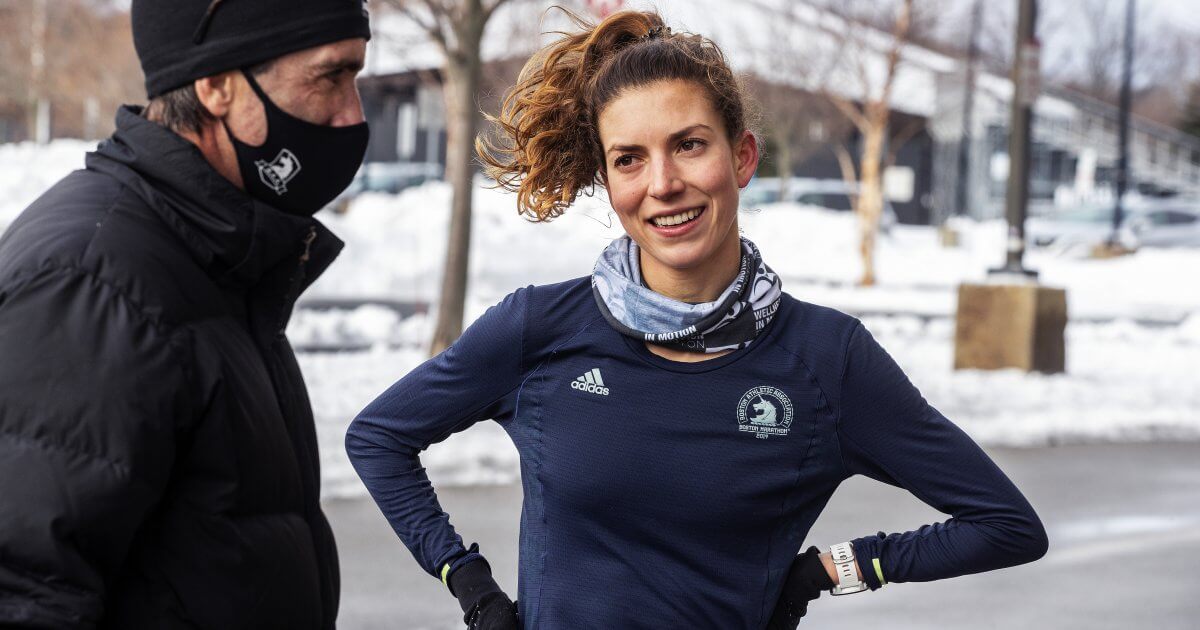Giordano's Cancer Journey
- Olympic-hopeful Dana Giordano qualified for the Olympic Trials after a record-breaking performance in the 5,000 meters event.
- Giordano battled ovarian cancer when she was a teen, and treated it with surgery.
- Ovarian cancer symptoms can be difficult to spot. They may include fatigue, back pain and constipation.
Giordano tells The Boston Globe that her scar from ovarian cancer surgery inspires her to keep going. "I’ve developed a certain level of confidence from knowing that I’ve come out stronger,” she says.
Read More
Giordano’s Cancer Battle
In 2008, when Giordano was 14, she noticed she couldn’t button her shorts, she tells The Boston Globe. “I thought it was because I was finally gaining weight," says Giordano, who at the time was a skinny teen.Later on a trip, she had persistent pain in her stomach that led her to seek medical attention. Doctors took X-rays and completed blood tests, and she was rushed to Children’s Hospital in Boston. Giordano had a 5.5-pound cancerous tumor. "They told me that I had a large, melon-sized ovarian teratoma like a little football or something," she says.
Giordano’s family has a history of ovarian cancer; Giordano lost her grandmother to the disease. After emergency surgery to remove the tumor, Giordano had a long recovery period, but it instilled in her a desire to live life to the fullest. "Every time you get a CAT scan or MRI or ultrasound, you’re nervous that you’re going to have another reoccurrence of something,” she says.
Giordano had a second surgery when doctors found a cyst on her remaining ovary in 2009. Despite the setback, she ended up participating in a road race and raised more than $10,000 for cancer research.
Minimally Invasive Surgery for Ovarian Cancer: What to Expect
Symptoms of Ovarian Cancer
Ovarian cancer has been called “the cancer that whispers,” because of its hard-to-spot symptoms. “Patients may have some bloating, or changes with their urinary habits, which they might attribute to something else and not be too concerned,” gynecologic oncologist Dr. Heidi Gray said in an earlier interview.
Related: Ovarian Cancer: The Cancer That Whispers
People diagnosed with ovarian cancer may experience bloating or a feeling of being “full.” Other symptoms may include:
- Fatigue
- Back pain or pain during sex
- Constipation or upset stomach
- Weight loss and swelling around the abdomen
- Changes in your menstrual cycle such as heavy or irregular bleeding
If you experience any of the above symptoms in a persistent manner, you should make an appointment to see your doctor, according to Dr. Beth Karlan, a gynecologic oncologist at UCLA Medical Center. “If you do have these symptoms, even if it's only for two weeks but they're happening every day and seem to be getting worse, you should call your doctor and say, 'I'm having these symptoms. I'm concerned it could be ovarian cancer. Can I have an ultrasound and a CA-125?'” she said.
What Are the Symptoms of Ovarian Cancer?
Learn more about SurvivorNet's rigorous medical review process.


